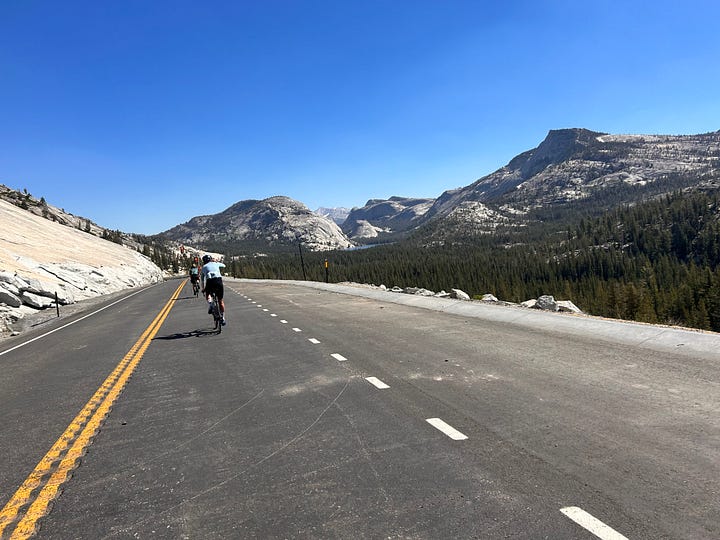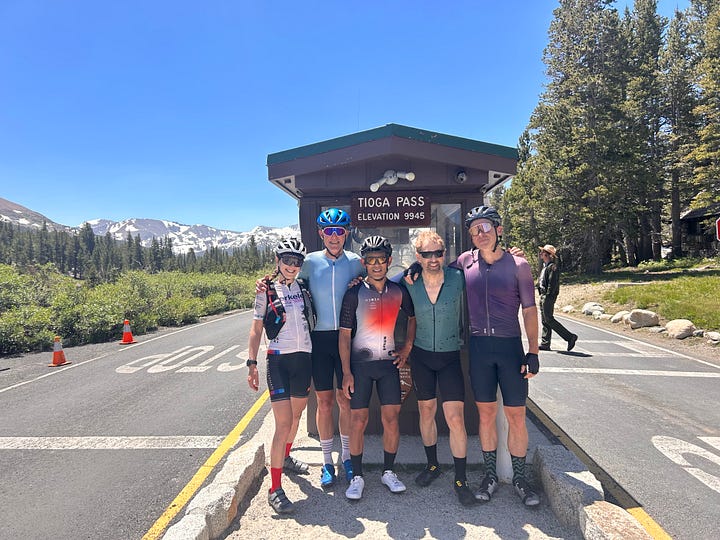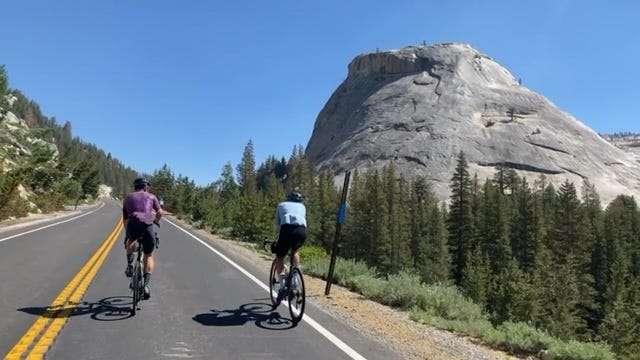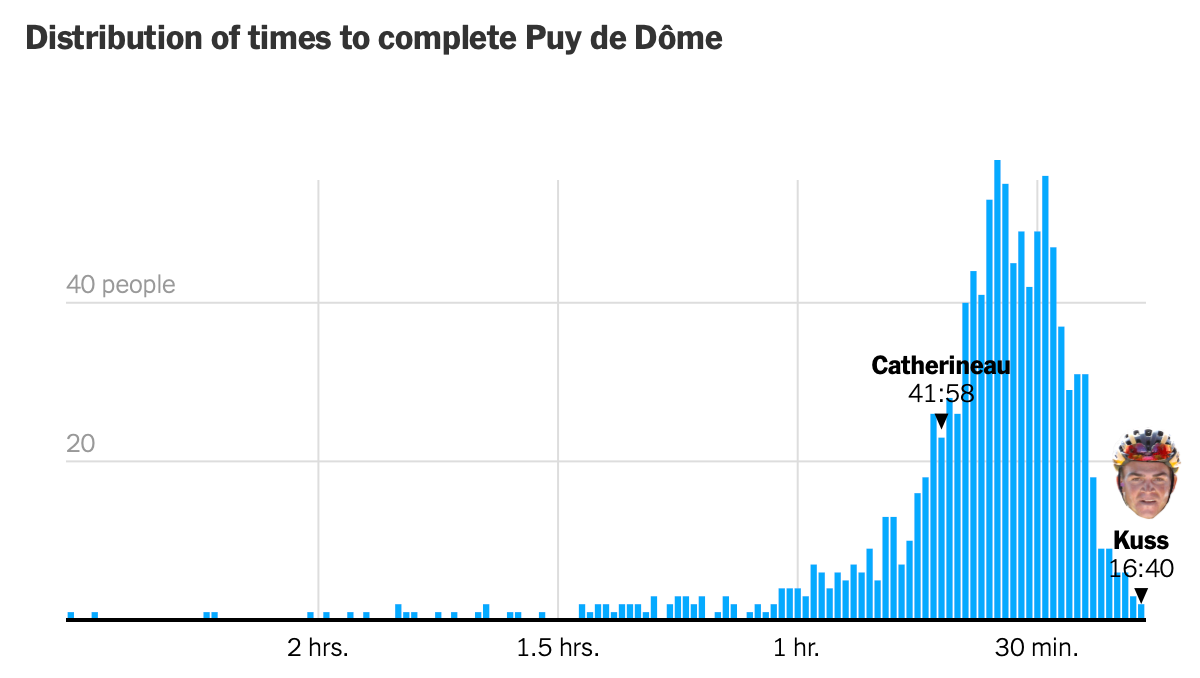Dear friends,
Many thanks to the pro-bono editors among you who volunteered to review my draft essay on depopulation, immigration, and the future of work. I’ll incorporate their edits and send it out next week. Here’s a teaser:
So there you have it: the UK’s Prime Minister Rishi Sunak, whose parents immigrated from East Africa in the 1960s, tasked his Home Secretary Suella Braverman, whose father was a refugee from Kenya, to implement a plan to deport all asylum seekers to autocratic Rwanda. Meanwhile, the woman who took over the National Health Service in the midst of the pandemic is entirely reliant on nurses from Nigeria and Ghana to attend to a record waitlist for medical care. More than 7.2 million Brits are currently waiting for medical care, and the government has routinely missed its target to bring down wait times for medical operations below 18 months. As if that weren’t bad enough, doctors are now striking for better pay and more rest.
But for this week, six notes on the self:
When we are thrust out into the world just as we are, we first have to identify with that particular throw of the dice, with that accident organized by the divine computer: to get over our surprise that precisely this (what we see facing us in the mirror) is our self. And it isn’t enough for us to identify with our selves, it is necessary to do so passionately, to the point of life and death. Because only in this way can we regard ourselves not merely as a variant of a human prototype but as a being with its own irreplaceable essence.
~ Milan Kundera, Immortality (1988)
In some sense, the people chasing thrills, or flow states, or orgasms, or any of these states that people strive to get to —they are basically trying to get out of their own head. They are trying to get away from that voice in their head, and that over-developed sense of self. I do not want my sense of self to get stronger as I get older. I want it to get weaker and more muted so that I can live more present in everyday reality and appreciate it as a child would. Then I would not have to seek happiness externally.
~ Naval Ravikant on the Knowledge Project Podcast (2017)
It changed the way I felt in the moment in a way that resonated so deeply that I wanted to keep creating that feeling. And what was that feeling? It was essentially the feeling of non-being. While I was reading the Twilight Saga, it transported me to another time and place, so that I completely forgot myself. And that “self-forgetting” was clearly something that I needed and wanted.
~ Stanford psychiatrist Anna Lembke on becoming addicted to teenage vampire romance novels in her 40s (2023)
The sovereign ego, with all its armaments and fears, its backward-looking resentments and forward-looking worries, was simply no more, and there was no one left to mourn its passing. Yet something had succeeded it: this bare disembodied awareness, which gazed upon the scene of the self’s dissolution with benign indifference. I was present to reality but as something other than my self. And although there was no self left to feel, exactly, there was a feeling tone, which was calm, unburdened, content. There was life after the death of the ego. This was big news.
Michael Pollan, How to Change Your Mind: What the New Science of Psychedelics Teaches Us About Consciousness, Dying, Addiction, Depression, and Transcendence (2018)
A world of constant attentiveness would be a world without culture and art, not the kind of world I want to live in.
~ From “Why is Karl Ove Knausgaard Afraid of Therapy?” —a review of My Struggle (2020)
That night, at a small state campground just north of the total solar eclipse, I re-read a 2009 essay by Paul Graham about “Keeping Your Identity Small,” which argues that the fewer labels we attach to ourselves, the more accurately we can see the world around us. An obvious critique of the essay is that it’s easier for some people to keep their identities small when they have fewer labels imposed upon them, though in 21st-century America, I’m not sure who doesn’t have labels imposed upon them. Still, to Graham’s larger point, we all have a choice as to how many labels we assign ourselves, how attached we become to those labels, and how they influence our opinions. It occurred to me that I spent much of my 20s trying to construct an identity for myself, a way to describe myself and situate myself in the world. And now in my 30s, I find myself wanting to shed that identity, to detach from the labels, to merely be and observe.
~ From “The Joys and Sorrows of a Small Identity” —a piece I wrote after cycling from Seattle to Klamath Falls (2017)
🚵♂️ Tioga Pass, Bikes Only
Once per year, Yosemite National Park opens up its majestic Tioga Pass road to cyclists only before cars are allowed. They only give a day or two of notice, but word spreads among the Bay Area cycling community like a California wildfire. We cancel our meetings, rearrange plans, and try to get as much sleep as possible before waking up at 4 am for the 3.5-hour drive before the 8 am rollout. It was a magnificent day made all the sweeter by knowing it was likely my last for some time.




🚴♀️ One tour down, one tour to go
The New York Times rarely covers cycling, but this year Kevin Draper did a great job summarizing a gripping Tour de France. Stage 17 up the Col de la Loze will go down as one of the great stages, and I dream about one day riding it myself. One of my guilty YouTube pleasures is watching Mike Cotty’s polished videos of the world’s best cycling climbs. Mike uploaded an appealing video of climbing Col de la Loze just a day before Vingegaard’s legendary ascent.
Just how much faster do pro cyclists ride compared to a competitive amateur? The New York Times has some fun, interactive visualizations showing the difference:
Fear not, the world-class cycling isn’t over yet. We’re in the midst of Le Tour Femmes with five more stages to go before it wraps up on July 30th. I am bummed that local pro, Kristen Faulkner, isn’t competing after she was in a crash just a few weeks ago. And while I’m hopeful that American Veronica Ewers has a chance, I’d put my money on 40-year-old Dutch veteran Annemiek van Vleuten.1
👏 Kudos: Isabel Silver Nogueira
As I wrap up my eight-year term at Hewlett Foundation, I’ve been reflecting on the parts of the job that I love and want to take forward into my next chapter, and those others that I want to leave behind. I’ve discovered that I love working with younger colleagues. They inspire me, challenge my assumptions about the world, and open my mind to new ways of doing things. And they keep me feeling young and hungry.
I wasn’t looking for a summer intern in early 2020 when I received an email from Isabel Silver Nogueira saying that she would like to intern at the Hewlett Foundation as part of her graduate program. Little did we know that we were entering a multi-year, global pandemic as we finalized the paperwork. This past weekend, I took so much delight in seeing Isabel get happily married and take a deserved break from her important work to help unlock the $250 billion sitting in tax-subsidized donor-advised funds intended for charitable work.
I published a Q&A with Isabel as her internship wrapped up back in 2020; clearly, she is going to go far in her career and in life.
Have a great week!
David
Not that I have a strong track record after my flailing Fantasy Tour de France performance. 🙈



good call on "immortality". I've been meaning to read that again.
"It occurred to me that I spent much of my 20s trying to construct an identity for myself, a way to describe myself and situate myself in the world. And now in my 30s, I find myself wanting to shed that identity, to detach from the labels, to merely be and observe." Where are we at in our 40s? I think detaching labels and observing is what I'm entering. I might have been a late bloomer because I think my 30s were fueled by building a lot of identity focused on corporate ladder climbing. At least it was the epicenter. Is it shedding identity or centering on something else?
I started reading Rick Rubin's new book and there's a small section on how building true presence and awareness allows us to be much more creative and open to refine our art. Sounds so obvious but I find being aware in this world to be humanity's biggest challenge. We just don't stop.